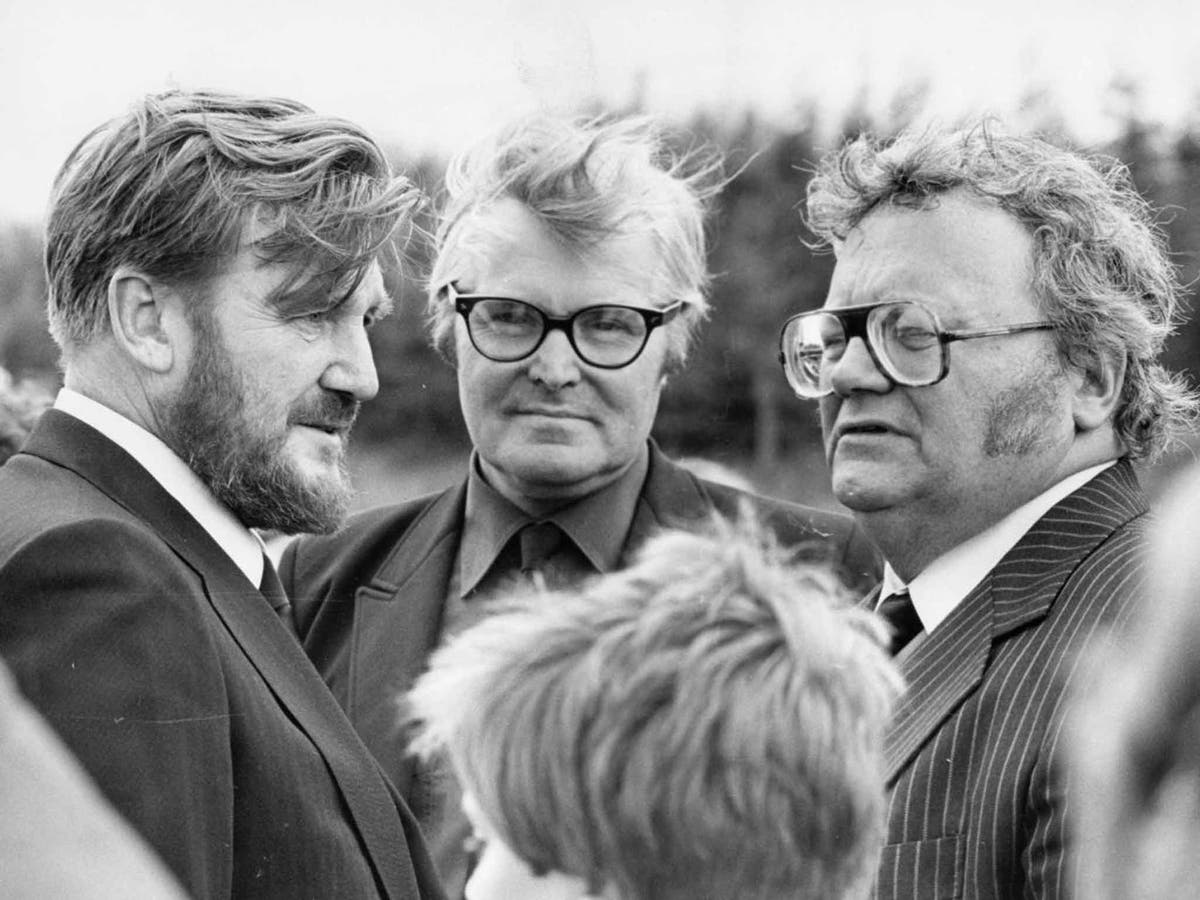[ad_1]
Although he had aspirations to become an actor early on, it was as a producer at a crucial time for British television that Leonard White made his mark. In a long list of credits, he’s probably best known for his work on The Avengers and Armchair Theater.
He was born in Newhaven, East Sussex in 1916, and it was thought that he might get into the family business (his father was a bookie and owner of racehorses), but contact with the theater in a school theater troupe convinced him he wanted to be an actor. After school he moved to London and joined the Tavistock Rep Company in Bloomsbury, where he learned important aspects of the acting profession.
The war ends and he serves in the infantry before returning to the theater. In the early 1950s he got television roles and decided he wanted to be a director, but was unsuccessful in taking the BBC directing course.
Fate intervened when one of his plays, A Sleep of Prisoners by Christopher Fry, was produced in Toronto. White was asked to both direct and reprise his original role. While in Toronto, he attended the first CBC (Société Radio-Canada) course for producers and directors.
Returning to the UK he joined the newly launched ITV, working as a director on many different productions before settling in 1960) as a full time producer for ABC, the powerful broadcaster serving the Midlands and North on weekend. He was wanted by playwright Sydney Newman, a Canadian whom White had first met while in Canada.
White’s first job as an ABC producer was on an existing show, Inside Story, set in a modern apartment building, with each episode dealing with a different inhabitant. From there, he made his way to the prestigious Armchair Mystery Theater, a summer reunion of ABC’s famous Armchair Theater. Although Newman jealously kept his role as an Armchair Theater producer, he was happy that White took the reins of the summer replacement.
Here, White worked with some of the best TV writers of the day, like James Mitchell, Philip Levene, and Ray Rigby, and with top-notch directors like Philip Saville, Dennis Vance, Charles Jarrott, and Robert Tronson. He later switched to the Police Surgeon drama series, a vehicle for one of television’s hottest properties at the time, Ian Hendry.
After a first series of 13, the take was pulled, however, due to a contract dispute, but ABC was eager to keep Hendry on screen and Newman suggested building a new show around him. They decided to keep Hendry as a medic (although he’s a different character from Police Surgeon), and the production team began to create a series around that premise.
They debated various titles for the new project before White suggested The Avengers. Newman was initially unsure of the name, thinking revenge was an unsavory concept, but White convinced him that “Avenging” was something different and showed him a dictionary definition: “retribution to the name of another”. Newman was convinced.
White suggested Patrick Macnee as a co-star for Hendry (he had worked with Macnee in London and Canada), and he was cast to play dark secret agent John Steed, who would drag Hendry’s Dr. Keel into dangerous adventures. White has always been adamant that creating The Avengers was truly a team effort, with a dedicated team all working on Newman’s simple instructions to create something for Hendry.
White produced the first 40 episodes of The Avengers, overseeing its development from a serious crime drama to something altogether stranger and more elegant. In common with most series at the time, the shows were released live or were recorded “live”, and were very different from the series filmed later.
The show gained popularity quickly but was in danger of derailing at the end of its first season. Equity, in dispute over payments from the commercial broadcaster, called a strike against ITV, virtually shutting down production. What at first seemed like a blessing – extra time to polish scripts and build up stock – quickly turned sour when Hendry announced he had secured a lucrative film deal and was leaving.
Newman turned to the production team again and asked them to create a new character to co-star with Patrick Macnee. He toyed with the idea of ​​bringing in a woman to partner with Steed, believing it could create a new dynamic. In the end, they chose three different partners: a doctor, Dr. King (Jon Rollason), a singing nightclub singer, Venus Smith (Julie Stevens) and a leather-clad Renaissance woman, Cathy Gale (Honor Blackman).
They used the scripts meant for Macnee and Hendry so often that Cathy Gale found herself in situations written for a man, dealing with bad guys with judo and punches. The result caused a sensation. The third series teamed up with Steed and Gale full time and when White left the series midway through that third season he was in good health.
At the same time, White was also directing the ITV sci-fi anthology series Out of This World, but he had a much bigger mission ahead. At the end of 1962, unhappy with the decision to do the Armchair Theater every fortnight, Sydney Newman abruptly left ABC to become chief dramatist at the BBC.
White was the perfect candidate to take over Armchair Theater, then British television’s biggest dramatic work. The change went smoothly and the series continued with the same strengths as before, bringing together an ever-growing audience and winning numerous awards.
After Armchair Theater, White worked until the mid-1990s for HTV, Scottish Television and BBC Scotland.
Leonard White, producer, director and actor: born in Newhaven on November 5, 1916: married in 1942 to Margaret Kent (deceased in 2013; two sons deceased); died in Seaford, East Sussex, January 2, 2016.
[ad_2]

